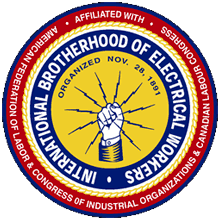December 16, 2014
By Steve Wishnia
Simply exploiting fear can discourage workers from speaking out. “You only have to call ICE a couple times, and then everyone knows it’s a possibility,” says Nicky Coolberth of the United Food and Commercial Workers.
In agriculture and related industries, where about 70 percent of workers are undocumented, the anti-union consultants employers hire can be “pretty subtle,” says Pete Maturino, head of the UFCW’s agriculture division. In formal unionization campaigns, he explains, organizers are allowed to visit workers at home, so employers give their names and addresses to the National Labor Relations Board, which passes them on to the union. The consultants will apologize to the worker for that, saying, “I had to give your name and address to the federal government, and I know your situation.”
At an onion-processing plant in Firebaugh, California, he says, consultants told workers in one-on-one meetings “you have to be documented to be a member of the union.” At the Apio salad-processing plant in Guadalupe on the Central Coast, the consultants told workers that “union membership requires you to be documented, so a lot of you are going to lose your jobs.” (“In fact, the union is required to represent members no matter what their status,” responds Coolberth.)
Results of the vote held at Apio Dec. 5 are still undecided, according to the NLRB’s Los Angeles office. Preliminary results showed more workers voting against joining the UFCW, but there were enough challenged ballots—135 out of more than 750 cast—to possibly swing the election in the union’s favor. Local 5 says it will contest employer misconduct if it loses.
The language barrier is another issue, says National Guestworker Alliance organizer Nelson Motto. When workers have to sign papers they don’t understand, documents that might lead to their deportation, it’s “a very intimidating space to be in.”
These tactics don’t always work, however. Last February, after 19 workers at Alameda County Industries, a garbage-recycling company in San Leandro, California, signed a letter announcing that they were going to sue for being paid almost $6 an hour less than the city’s $14.17 “living wage,” 18 of them were fired on the grounds that an ICE audit a year before had revealed they were undocumented. The news of the audit provoked a strike, and in October, workers at the facility voted overwhelmingly to join Local 6 of the International Longshore Workers Union.
“A lot of times, undocumented workers are our strongest supporters, because they’ve been through so much and they won’t take any crap,” says Mike Henneberry of UFCW Local 5.
Legal issues
In the courts, undocumented workers have two main problems, says Rebecca Smith, deputy director of the National Employment Law Project: actually enforcing their rights, and having their status exposed.
The key legal precedent is the Supreme Court’s 2002 decision in Hoffman Plastic Compounds v. NLRB, in which a 5-4 majority held that a Mexican immigrant illegally fired for being a union supporter had no right to get back pay or his job back, because he was “never lawfully entitled to be present or employed in the United States.”
That decision, says Smith, “unleashed this whole wave” of employers claiming that undocumented immigrants were not entitled to back pay, workers’ compensation, or freedom from racial or gender discrimination. Lower-court rulings have moderated that somewhat since then, she adds, as “there is no credible argument that unauthorized workers aren’t entitled to their basic wage for work—a contrary view would condemn them to slavery.”
In 2011, when a Colorado restaurant worker sued his former employer for wage theft, a federal court ruled that the employer’s attempts to find out his immigration status were “an improper attempt to harass and intimidate Plaintiff.” In 2010, the Washington Supreme Court held that admitting evidence that a construction worker injured on the job was undocumented was more likely to prejudice the court than prove anything relevant.
Workers have won most such cases, Smith says, but employers still use “very aggressive discovery tactics” to reveal their undocumented status in court, and there have been “a couple of outlandish decisions.” In 2011, a federal judge in Washington state ordered apple-orchard workers suing their employer for sexual harassment to reveal their immigration status, saying that the women’s emotional distress might have been caused by being undocumented and not from having had a foreman stick his hand down their pants. In a class-action suit about wage theft in California last year, the judge said undocumented workers could not be among the named plaintiffs representing the class of unpaid workers.
ICE recognizes the potential for employers to take advantage of immigration laws, says the immigration specialist, but its general policy of not interfering with labor disputes varies from place to place. Some local offices, he says, have close relations with the employers they police.
The 1998 memorandum of understanding with the Department of Labor suspends ICE enforcement at a workplace only while there is a federal investigation of workers’ wage and hour or health and safety complaints, the NELP report notes. It does not suspend it during state investigations of wage theft or safety violations, or protect workers who make claims about discrimination or for workers’ compensation—and it “explicitly allows ICE to resume or begin an audit after the Department of Labor investigation concludes.”
Hope for Change from Obama?
Will President Barack Obama’s executive orders intended to enable an estimated 4 million undocumented immigrants to stay in the country make a difference?
Rebecca Smith calls them “a huge step forward that will give immigrant workers protection.” She hopes they will allow more workers to come forward.
The UFCW’s Mike Henneberry says he’s “glad for the incremental changes,” but cautions that they will cover less than half the nation’s 11 million undocumented immigrants.
Giving workers some kind of assurance that they won’t be deported doesn’t mean retaliation will stop, says Nelson Motto of the Guestworkers Alliance. The Obama plan might even make things worse for those who don’t qualify, by pushing them deeper into the underground economy. He believes there needs to be comprehensive immigration-reform and worker-rights laws.
The AFL-CIO has proposed 10 actions the President could take through executive order. Among them are creating a process in which workers would be safe from retaliation based on their immigration status for joining a union or making a health or safety complaint; “deprioritizing I-9 audits of companies that already pay more than industry averages and/or have an established collective bargaining relationship with their employees”; revising procedures to ensure that employers can’t “embroil the federal immigration enforcement mechanisms into labor disputes”; and making victims of workplace crimes equally eligible for the “U visas” given immigrants who are victims of other crimes and cooperate with police.
“Providing protection to undocumented individuals who assert their workplace and civil rights protects all workers,” it says, and “allowing them to be detained or deported for such activity has a dangerous chilling effect on activity to enforce workplace standards.”
“There needs to be some kind of legalization,” says Motto. “If not, there’s nothing that will force these employers to reinstate these workers. At the end of the day, they’re still undocumented.”
A version of this article originally appeared on Dissent NewsWire.



